Recent years, Lithium-ion Batteries Thermal Runaway events have attracted widespread attention. To further reduce the loss of life and property caused by Lithium-ion Batteries Thermal Runaway, some important regulations have been promulgated. UN GTR 20 and GB 38031-2020 have the safety requirement of early warning indication at least 5 mins before thermal runaway happens to ensure passenger safety.
Cubic has the total solutions for Li-battery thermal runaway monitoring to solve the most complex application challenges.
Li-battery Thermal Runaway Detection Integrated Sensor ATRS-1012
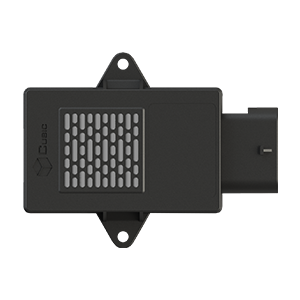
Image Credit: Cubic Sensor and Instrument Co. Ltd
Cubic ATRS-1012 sensor is a Li-battery thermal runaway detection sensor that can effectively monitor CO2 and H2 released from lithium-ion batteries, and generate an early warning signal to Battery Management System (BMS), to formulate safety alarm strategies. Cubic innovatively combines non-dispersive infrared (NDIR) and thermal conductivity (TC) technology to integrate a sensor solution that has remarkable characteristics such as fast response time, accurate measurement, long life time and low power consumption, could be widely used for Li-battery electrical vehicle and energy storge system.
Li-battery Thermal Runaway Detection Integrated Sensor ATRS-1013
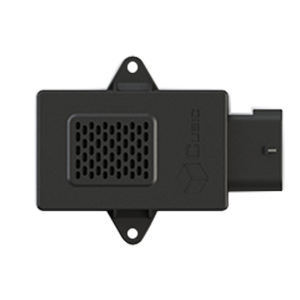
Image Credit: Cubic Sensor and Instrument Co. Ltd
Cubic ATRS-1013 sensor is a Li-battery Thermal Runaway sensor that can effectively monitor the gas concentration of CO2, H2, and pressure change from Lithium-ion battery thermal runaway event, and generate an early warning signal to Battery Management System (BMS), to formulate safety alarm strategies. Cubic innovatively combines non-dispersive infrared (NDIR), Thermal Conductivity (TC) and MEMS technology to integrate a sensor solution that has remarkable characteristics such as fast response time, accurate measurement, long life time and low power consumption, could be widely used for Li-battery Electrical Vehicle and Energy Storge System.
Automotive Li-battery Thermal Runaway Sensor ATRS-1011

Image Credit: Cubic Sensor and Instrument Co. Ltd
ATRS-1011 sensors can effectively monitor CO2, CO/HC/H2 released before the Thermal Runaway trigger of Lithium-ion batteries, as well as temperature and pressure, and transmit the measurement signal via CAN communication to new energy Battery Management System (BMS), to formulate safer early warning strategies. Cubic has mastered a variety of gas sensing and detection technologies. In view of the performance requirements of sensors for Thermal Runaway monitoring, such as fast response time, accurate measurement, less cross interference, long service life and low power consumption, Cubic innovatively combines non-dispersive infrared (NDIR) spectroscopy and MEMS metal oxide semiconductor technology (MOX), an integrated sensor solution integrating a variety of core sensor technologies is introduced, which can effectively and accurately measure combustible gas.
Gas Leakage Detection MEMS Thermal Conductivity Hydrogen Sensor ATRS-1016
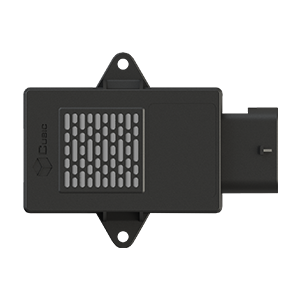
Image Credit: Cubic Sensor and Instrument Co. Ltd
Cubic ATRS-1016 series is a MEMS Thermal Conductivity Hydrogen sensor that can effectively monitor H2 leakage and generate an early warning signal to formulate safety alarm strategies. With the features of fast response time, long life time and low power consumption, ATRS-1016 series MEMS TC H2 sensor can be widely used for applications of Li-battery thermal runaway, hydrogen fuel cell and hydrogen energy storage.
Automotive Li-battery Thermal Runaway Sensor ACDS-1001
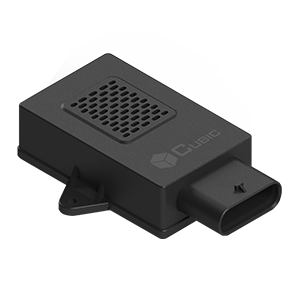
Image Credit: Cubic Sensor and Instrument Co. Ltd
ACDS-1001 is a CO2 sensor based on NDIR (non-dispersive infrared) technology that can effectively monitor CO2 concentration in various applications.With the features of fast response, less cross interference, low power consumption and long lifetime, ACDS-1001 can be widely used for Automotive Li-battery Thermal Runaway monitoring, Automotive Air Conditioner Refrigerant Leakage monitoring, as well as in-cabin air quality monitoring.
Automotive Li-battery Thermal Runaway Sensor AQM-1020
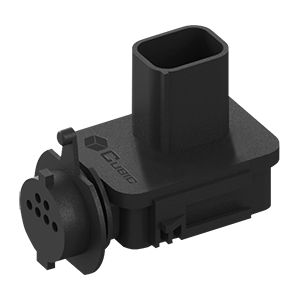
Image Credit: Cubic Sensor and Instrument Co. Ltd
AQM-1020 is a CO sensor based on MEMS (Microelectronic Mechanical Systems) technology, that can effectively monitor CO concentration released from lithium-ion batteries, and generate an early warning signal to Battery Management System (BMS), to formulate safety alarm strategies.
AQM-1020 can be used for Automotive Li-battery Thermal Runaway events monitoring to ensure the passenger safety.
Battery Safety Aerosol Sensor ATRS-1031
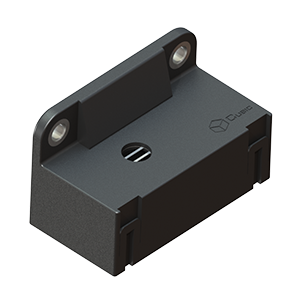
Image Credit: Cubic Sensor and Instrument Co. Ltd
ATRS-1031 Aerosol sensor is an Infrared (LED) particle sensor for Automobiles. The sensor can effectively monitor the dust concentration released before the Thermal Runaway trigger of Lithium-ion Batteries, and transmit the measurement signal via CAN communication to Battery Management System (BMS), to formulate safer early warning strategies. This solution has remarkable characteristics such as fast response time, less cross interference, low power consumption, long life and high reliability.
Automotive Li-battery Thermal Runaway Pressure Sensor ATRS-1015

Image Credit: Cubic Sensor and Instrument Co. Ltd
Cubic ATRS-1015 is a MEMS pressure sensor that can effectively monitor the pressure change before the Thermal Runaway trigger of Lithium-ion batteries, and generate an early warning signal to formulate safety alarm strategies. It has remarkable characteristics such as fast response, less cross interference, long life time and low power consumption.